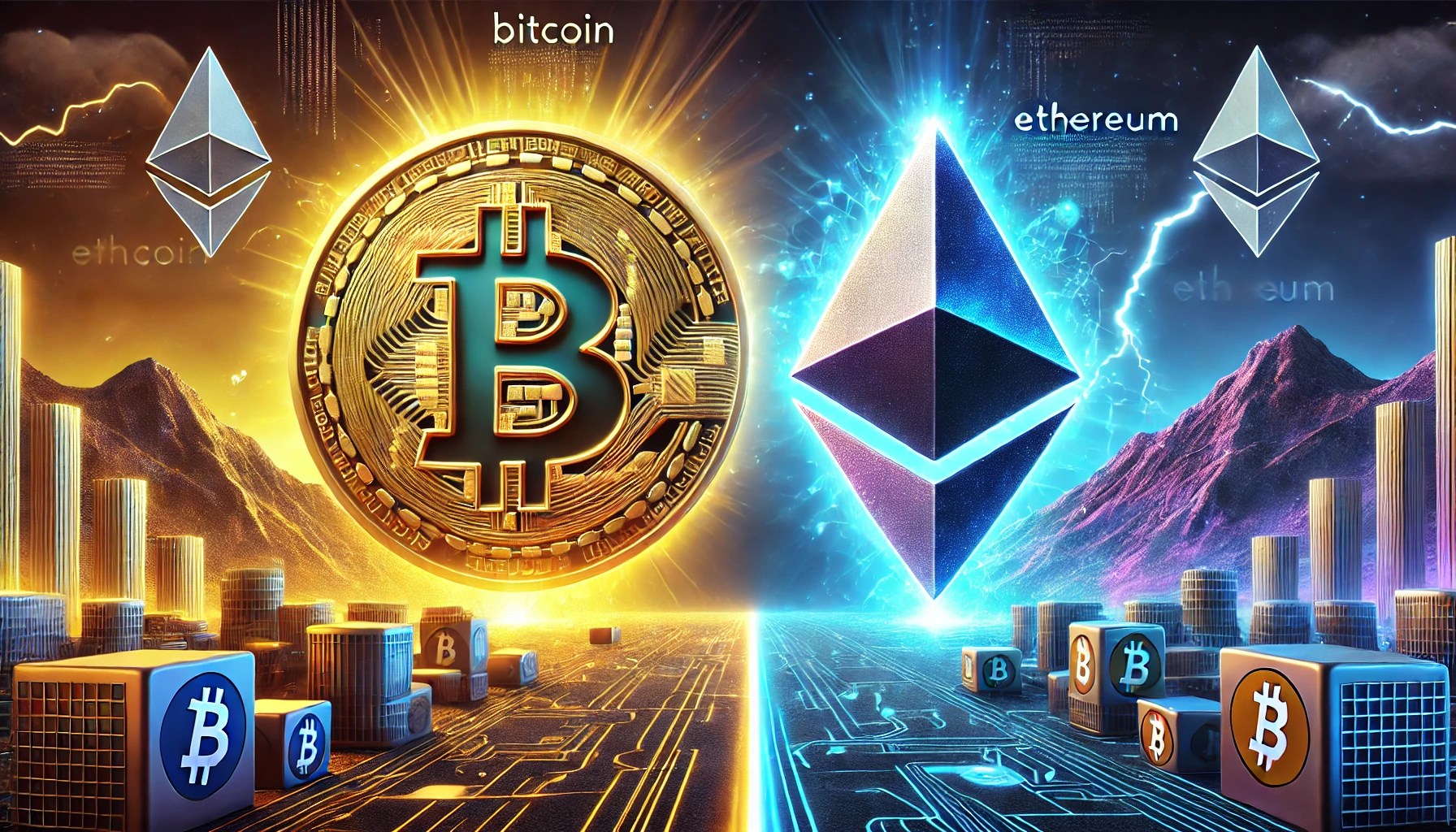PVPN Trends
Stay updated with the latest trends in privacy and security.
ETH and the Quest for Digital Gold
Discover how ETH is redefining wealth in the digital age and the race for cryptocurrency supremacy. Don't miss out on the future of finance!
What is Ethereum and How Does it Differ from Bitcoin as Digital Gold?
Ethereum is a decentralized, open-source blockchain platform that enables developers to build and deploy smart contracts and decentralized applications (dApps). Unlike Bitcoin, which primarily serves as a digital currency, Ethereum is often seen as a platform for innovation due to its versatility and programmability. One of the key features of Ethereum is its ability to facilitate smart contracts, which are self-executing contracts with the terms of the agreement directly written into code. This capability allows Ethereum to support a broad range of applications beyond mere transactions, promoting a decentralized ecosystem of financial services, gaming, and more.
While both Bitcoin and Ethereum are often referred to as digital gold, their fundamental principles and uses differ significantly. Bitcoin's primary function is as a store of value and a medium of exchange, characterized by its deflationary nature and capped supply of 21 million coins. In contrast, Ethereum's purpose extends beyond currency; it functions as a platform for creating complex financial instruments and decentralized applications. This distinction is crucial, as it sets Ethereum apart from Bitcoin, placing it at the forefront of technological advancement in the blockchain space. For more insights on how Ethereum contrasts with Bitcoin, visit Forbes.

The Role of Smart Contracts in Establishing Ethereum as the Future of Digital Assets
Smart contracts have emerged as a pivotal innovation within the Ethereum ecosystem, effectively laying the groundwork for a decentralized future of digital assets. These self-executing contracts, facilitated by blockchain technology, eliminate the need for intermediaries and significantly reduce transaction costs. By enabling automated agreements, smart contracts not only enhance efficiency but also foster trust among users. This transformative approach is crucial for industries such as finance, supply chain, and real estate, where transparency and accountability are paramount.
The implications of smart contracts extend far beyond mere transactional functionalities; they position Ethereum as a frontrunner in the burgeoning landscape of digital assets. By leveraging decentralized applications (dApps) built on Ethereum, businesses can offer innovative financial products and services, driving adoption and real-world use cases. As we witness the rapid evolution of blockchain technologies, it becomes increasingly evident that Ethereum, powered by smart contracts, is well-equipped to shape the future of digital asset management and global finance.
Is Ethereum the Next Frontier in the Search for Digital Gold?
The potential for Ethereum to be considered the next frontier in the search for digital gold is growing increasingly evident. Unlike traditional cryptocurrencies such as Bitcoin, which are primarily viewed as a store of value, Ethereum's unique capabilities extend beyond mere financial transactions. With its smart contracts and decentralized applications (dApps), Ethereum offers a multifaceted ecosystem that can support a variety of uses, from decentralized finance (DeFi) to non-fungible tokens (NFTs). This versatility raises the question: could Ethereum's expansive utility give it an edge in the race to become the preferred asset in the digital economy?
Furthermore, the ongoing improvements in Ethereum's infrastructure, particularly the transition to Ethereum 2.0, suggest a heightened commitment to scalability, security, and sustainability. As more investors and institutions begin to recognize the importance of Ethereum in fostering innovation and driving the next wave of technological advancement, it is injecting new life into the idea that it could fulfill the role of digital gold. Ultimately, the comparison between Ethereum and Bitcoin may be less about one dominating the other and more about how each asset can uniquely contribute to a diversified digital asset portfolio.